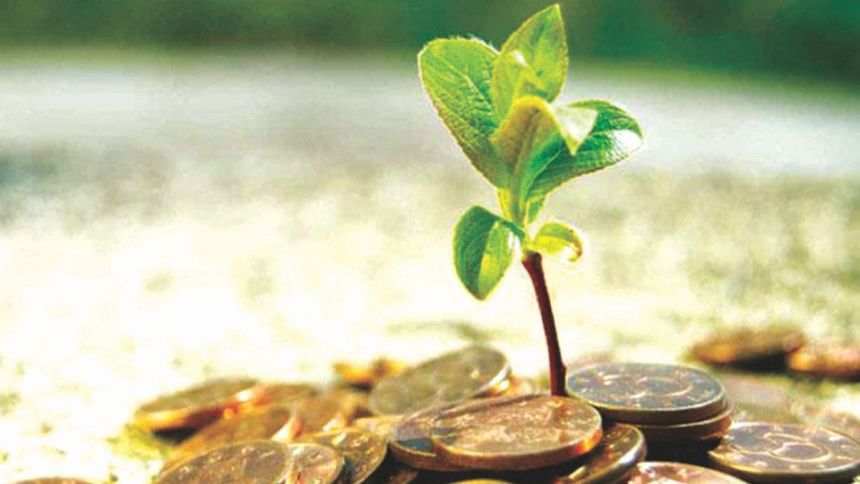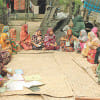How zakat can eliminate poverty

Around 1400 years ago, a system of social security was introduced which turned semi-barbaric, desert faring Arabian tribes into one of the most prosperous and advanced nations in the world. This social security system involves transfer of surplus wealth from the rich to the poor to alleviate poverty in a sustainable way so that all people can enjoy their legitimate rights to live a life of safety and dignity. This groundbreaking economic system is called zakat.
Mentioned in the Holy Quran 88 times, zakat is considered as one of the fundamental pillars of Islam and an indispensable instrument of the Islamic society. All the scholars of Islam unanimously agreed that, to be a Muslim, it is mandatory to pay zakat if s/he is eligible. This eligibility criterion for paying and receiving zakat is also clearly defined in the Quran. However, due to lack of awareness, the concept of zakat is often misunderstood in our society. Every year we can see how some zakat payers distribute food and clothes of inferior quality to the destitute people who often fall victim to stampede to collect those alms in the name of zakat.
Contrary to this malpractice, the wealth of zakat should be distributed in such a way so that the receivers can bring significant changes to their lives and livelihoods. There is no way of considering zakat as a tax, alms or donation; rather, in the Quran, zakat has been stated as the indisputable right of the poor, needy people.
The Centre for Zakat Management (CZM) has come up with the goal to establish zakat as a tool to alleviate poverty and discrimination in a sustainable way by proper utilisation of zakat funds. Established in 2008, CZM has launched various initiatives to distribute the zakat funds to all segments of poverty-ridden and destitute people in our society.
CZM's flagship project called Jeebika is a livelihood and human development programme through which 5404 families of more than 20 districts have become self sufficient by getting themselves involved in different income generating activities with the help of zakat fund. In principle, CZM officials transfer the zakat fund to the zakat recipients in several instalments while providing them training on different need-based professions, enable them to access the market and provide support to manage the collective zakat fund. In the year 2015 alone, there has been an increase of 59 percent in the amount of fund transfer since a total of 197, 00,000 BDT has been transferred to 1470 families in 10 different districts.
Besides, CZM has been running two specific initiatives to encourage entrepreneurship among the youth and women through skill development and self-employment. These initiatives are called Naipunno Bikasha and Mudareeb, thanks to which, last year, more than 1000 youth were trained on different professions and 770 of them were employed in different organisations.
With two of its programmes, called Genius and Gulbagicha, this welfare organisation has taken the initiative to utilise zakat fund to spread quality education among poor, underprivileged children. Every year, it provides scholarship to thousands of students all over the country and imparts capacity development training to them. It also has another dedicated pre-primary education programme for the poor children living in urban slums and remote rural areas.
With its own pre-primary learning centres, CZM has been providing innovative learning equipments and nutritious food for the children. With another initiative called Ferdousi, CZM has started to utilise zakat fund for the improvement of maternal and neonatal health. It provides free medicine and treatment by specialised doctors to pregnant and lactating mothers and organises awareness-raising sessions in the least privileged communities.
Besides these, CZM regularly organises motivational and awareness-raising programmes to make people aware of the true concept of zakat. Every year it organises 'Annual Zakat Fair' where different organisations participate, scholars and leaders take part in the discussions and beneficiaries of zakat share their inspiring stories. For its contribution to ensure sustainable development, CZM was awarded the Islamic Economy Award 2015 in the Waqf & Endowment category by the Global Islamic Economic Summit, Dubai, United Arab Emirates.
According to a research done by Dr. Kabir Hassan, Prof. University of New Orleans, it has been calculated that each year BDT 25,000 crore of zakat can be obtained from Bangladesh and if distributed properly each extremely poor family can get two million taka from this huge fund. Zakat, in fact, is an opportunity, a possibility for Bangladesh to fight poverty in a sustainable way. If this system of social security can be utilised effectively like the initiatives taken by CZM, it will be very possible for Bangladesh to break free from the vicious cycle of poverty and be a self sufficient, prosperous nation.
The writer is General Manager, Center for Zakat Management (CZM).

 For all latest news, follow The Daily Star's Google News channel.
For all latest news, follow The Daily Star's Google News channel. 








Comments